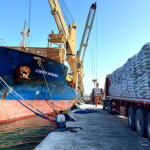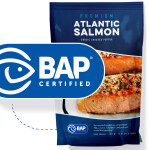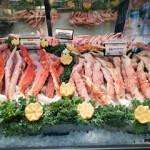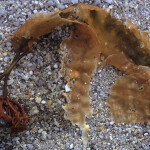Ned Daly is a sustainability strategist with Diversified Communications. He has worked on sustainable markets in a variety of resources for 25 years. Ned worked in seafood for the last decade with SeaWeb, Previously he was director of RugMark International (now GoodWeave), a certification program for child-labor-free rugs coming from Southeast Asia. He also served as chief operating officer for the Forest Stewardship Council in the United States, managing relationships with industry leaders and a diversity of key stakeholders including conservation nongovernment organizations, policymakers and industry trade associations. Ned has also worked on sustainable markets in the agricultural sector and the relationship between resource extraction and ecosystem health. He lives in Alfred, Maine.
Author Archive
Following a 15-month assessment process, the European South Pacific jack mackerel fishery has been approved under the Marine Stewardship Council’s fisheries standard.
As of 26 March, the fishery has been permitted to use the MSC label on its products. The certification is effective through March 2025, with the fishery undergoing annual audits to ensure it continues to meet the standard’s requirements, MSC said.
The midwater
… Read MoreCertification programs are adjusting practices and policies in response to safety concerns around the COVID-19 pandemic, in an effort to support businesses in an already challenged industry.
The Marine Stewardship Council (MSC), the Global Aquaculture Alliance (GAA), and Fair Trade have all made initial accommodations to reduce travel and in-person interaction while retaining the integrity of their programs. Each organization is also in the
… Read MoreThe seafood industry continues to show its commitment to improving the sustainability of fisheries worldwide, as evidenced by a new report from environmental research and advisory firm CEA Consulting.
In 2019, 136 fishery improvement projects (FIPs) existed worldwide, a 64 percent increase over 2014’s tally of 83, according to CEA Consulting’s "2020 Global Landscape Review of FIPs" report. What’s more, seafood businesses are
… Read MoreFishing vessels certified by the Marine Stewardship Council will no longer be able to target a stock using non-certified fishing practices, beginning in 2023.
The MSC had been criticized for allowing “compartmentalization,” the practice of fishing vessels using certified and non-certified fishing methods while utilizing the same gear type. MSC-certified purse-seine tuna fisheries that employ certified “free-school”
… Read MoreThe Sustainable Fisheries Partnership (SFP) has launched the Aquaculture Improvement Project (AIP) Directory to support the seafood supply chain’s engagement with aquaculture improvement projects.
The new AIP Directory currently lists five active aquaculture improvement projects that cover three countries (China, Indonesia, and Thailand) and two species (shrimp and tilapia). Other active AIPs are invited to register on the website
… Read MoreBlumar Farms, one of two partners at BluGlacier, has achieved Aquaculture Stewardship Council certification for its three sites in Chile’s Magallanes region.
The new certification means the company will now be able to supply 17,000 metric tons of ASC certified salmon to global customers in 2020
… Read MoreCiting the importance of seafood as a global source of protein, increasing regulation, and creating greater efficiency in trade, the Global Dialogue on Seafood Traceability (GDST) has developed a set of basic technical standards to allow for interoperability across seafood traceability platforms. The effort is intended to make global seafood traceability more reliable and more affordable for companies throughout the supply chain.
Because seafood
… Read MoreAmerican consumers continue to have no strong established preference for farmed or wild fish, according to a new study by Changing Tastes. That lack of preference, the report found, extends to the broader seafood category as well.
A majority of U.S. consumers now consider both wild-capture and aquaculture to be acceptable ways of producing fish and seafood, Changing Tastes discovered, but only 17 percent said they ate fish because they
… Read MoreBumble Bee Foods and FCF Co. have teamed up with Ocean Outcomes to improve the sustainability of Bumble Bee source fisheries in the Indian Ocean via a fisheries improvement project (FIP), with an end goal of certification.
Presently, there are no certified albacore tuna or longline fisheries in the Indian Ocean.
Vessels that will participate in this FIP catch approximately 6,000 metric tons of albacore tuna annually from the Indian Ocean, with
… Read MoreA fishery targeting bigeye, skipjack, and yellowfin on the Eastern Pacific high seas and in the waters of Panama, Nicaruaga, and Ecuador has been listed on FisheryProgress.org (Fishery Progress), a website developed to help the seafood industry track credible fishery improvement projects (FIPs) and their progress toward improvement.
The fishery is listed as the “Eastern Pacific Ocean tuna – purse seine (Marpesca),” and includes
… Read More
















